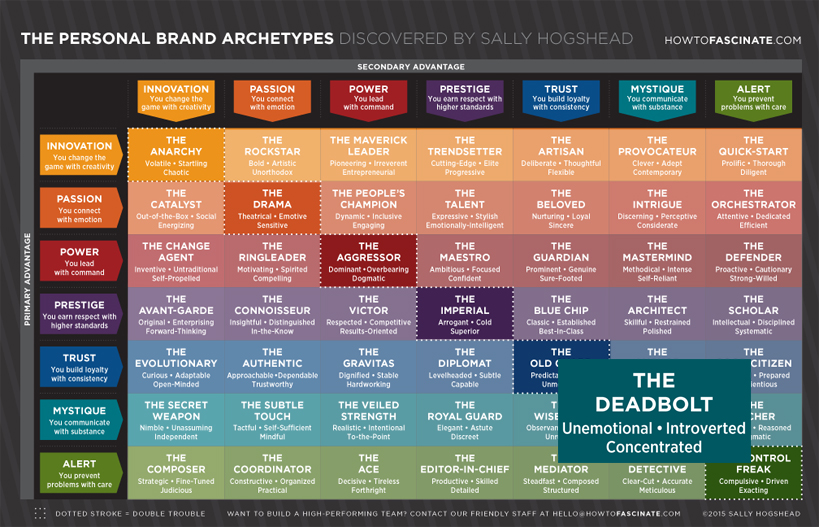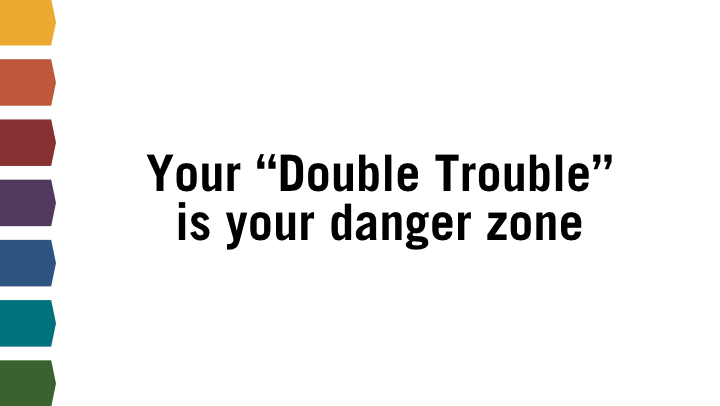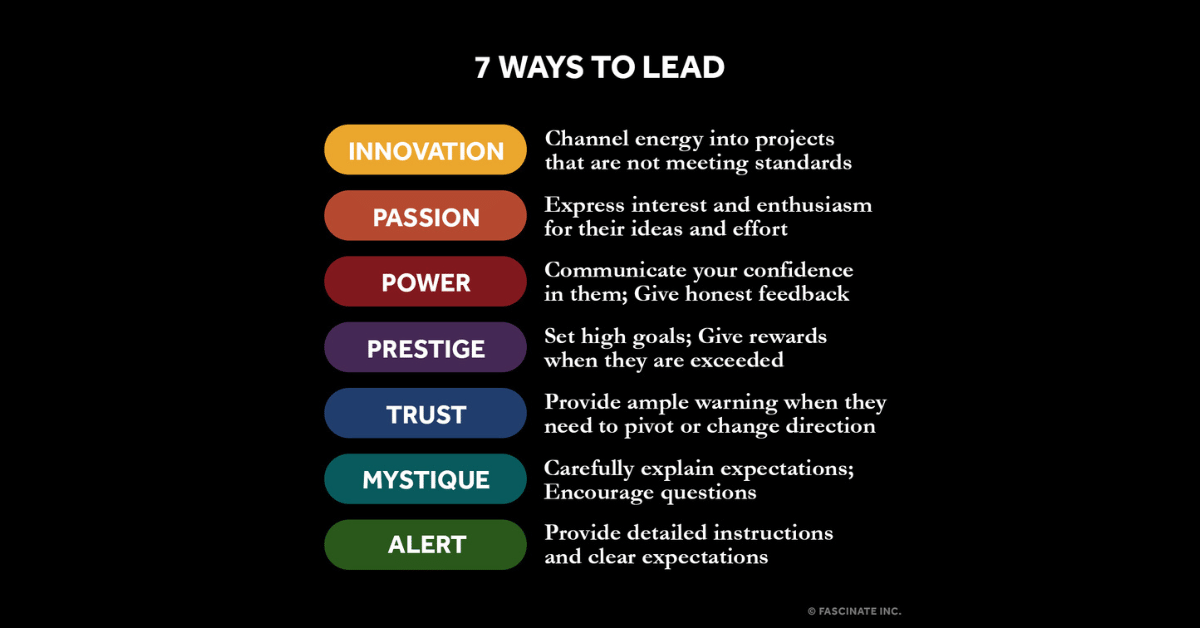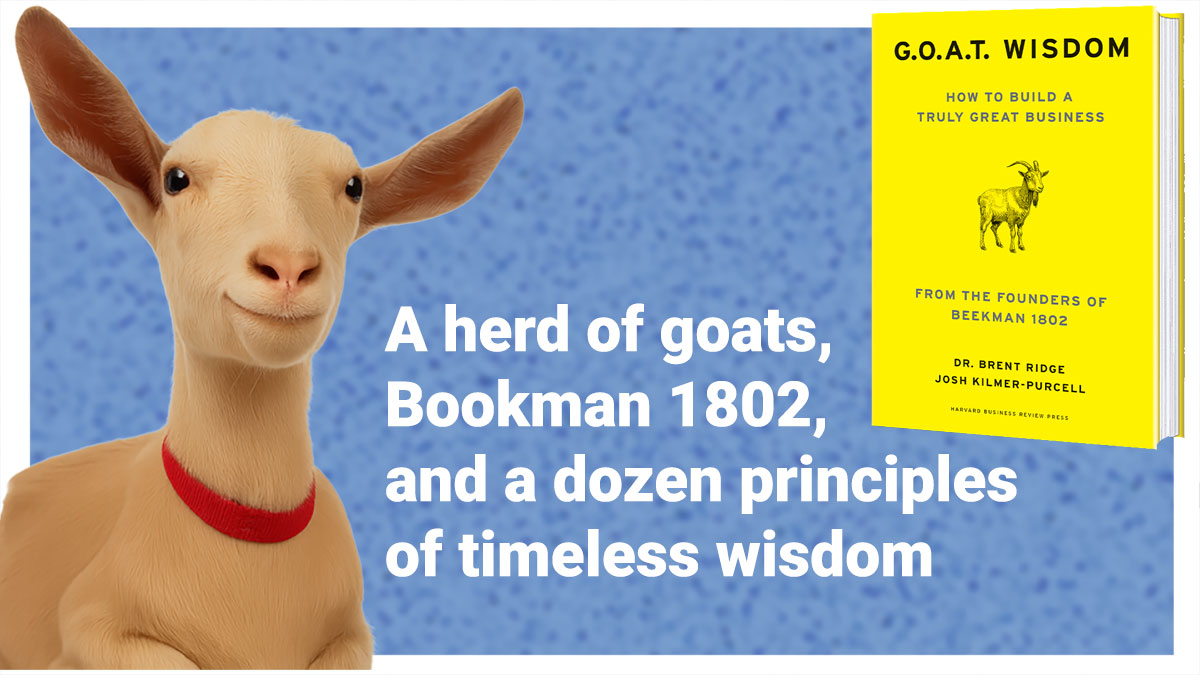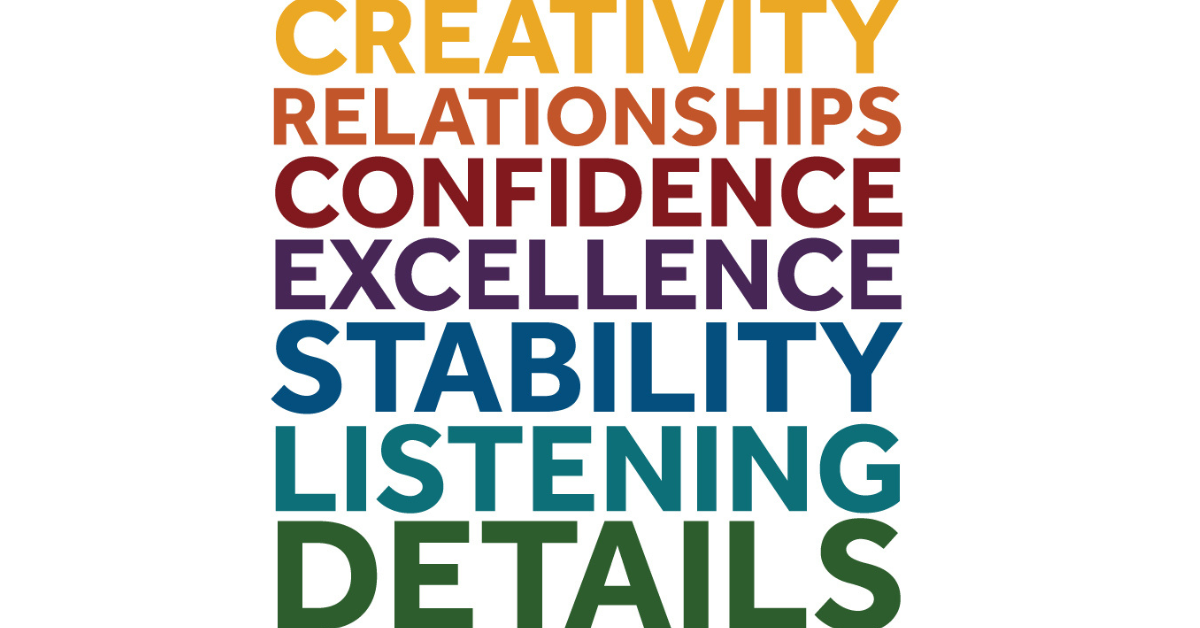Your personality has valuable, captivating differences. These attract people to you, and help you build relationships.
Yet we all have one fatal flaw.
When you get stressed, or tired, or out of whack, you can become exaggeratedly one-dimensional.
Your advantage becomes a disadvantage.
Rather than being seen in a positive light, you can turn people off, or push them away. I call this a “Double Trouble,” because rather than having a healthy balance, you are “doubling up” on one trait.
This causes big problems at work, and at home, often without our realizing it. It’s our personality danger zone.
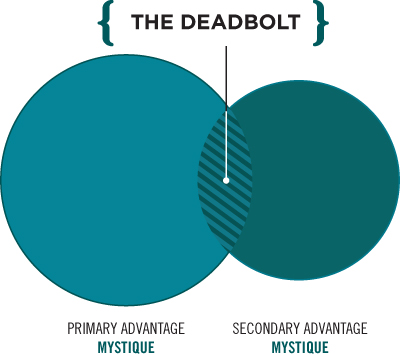
The good news is, there are patterns behind our pitfalls, and once you know what they are, you can avoid turning people off. Once you know your personality’s danger zones, you can avoid those pitfalls.
Your personality normally uses two dominant qualities: Your Primary and Secondary Advantages. These two Advantages balance each other and help your Archetype communicate within a healthy range.
Your Primary Advantage + Your Secondary Advantage = Your Archetype
However, what happens when you get stressed, overwhelmed, or fearful?
Mystique personalities restrain their emotions. Their air of mystery piques curiosity. They are independent, analytical, and systematic in their way of working. They can be formidable negotiators as they keep their cards close to their chest. They always think two steps ahead.
When mysterious becomes evasive
When a Mystique personality gets into Deadbolt mode:
- You may struggle to work as part of a team.
- You can become outsiders and loners. You don’t join in the gossip at the water cooler. You eat lunch in your own room. Others might not even know whether you have a partner or live on your own.
- You can come across as inaccessible, or even antisocial.
Too much Mystique can make people inaccessible. They become aloof and standoffish. Their lack of warmth may make them seem disinterested.
If you’re all Mystique, it becomes difficult to connect with colleagues and engage with clients.
An example of Mystique locking down emotions
Anton’s coworkers know that he is insightful and thoughtful.
Yet sometimes, Anton can appear secretive and standoffish. He becomes so withdrawn into himself; he can be seen as aloof or even hostile. In this Double Trouble mode, Anton appears secretive, which makes people around him less likely to communicate with him. His personality can’t shine through, and he is seen as reclusive. Often this can create a snowball effect; the more he withdraws from others, the less likely they are to connect with him.
In Double Trouble mode, David speaks only the language of introversion. He becomes unemotional and concentrated.
With a little expressive thinking, Anton can return to his normal balanced approach.
Making Mystique more accessible
When you’re stressed or anxious and find yourself communicating just one way, it’s good to remember your secondary Advantage to balance your messages:
If your Secondary Advantage is Passion, use that Advantage to open yourself up a little.
Add warmth to your relationships. It will help you to gain buy-in for your projects.
If your Secondary Advantage is Trust, use that Advantage to gain the confidence of others.
Become a valued member of the team.
If your Secondary Advantage is Prestige, use that Advantage to promote your distinct value.
Show what you’ve achieved and gain recognition from others.
If your Secondary Advantage is Power, use that Advantage to stamp your authority on the team.
Don’t shy away from taking disciplinary action. Take a more forceful approach to underperformance.
If your Secondary Advantage is Alert, use that Advantage to create urgency.
Work out a solid plan of action with your team.
If your Secondary Advantage is Innovation, use that Advantage to generate ideas.
Complement your analytical skills with creativity and inventiveness.
Do you feel yourself slipping into the Deadbolt when you feel stressed or overwhelmed?
What Advantage do you use to balance it out?
Discover your most impressive qualities today. Log in to your account or take the Fascinate® test here.
In less than 5 minutes, you’ll find out exactly how you’re most likely to add value. Unlock your Fascinate profile–or send a friend to find theirs–right here.
